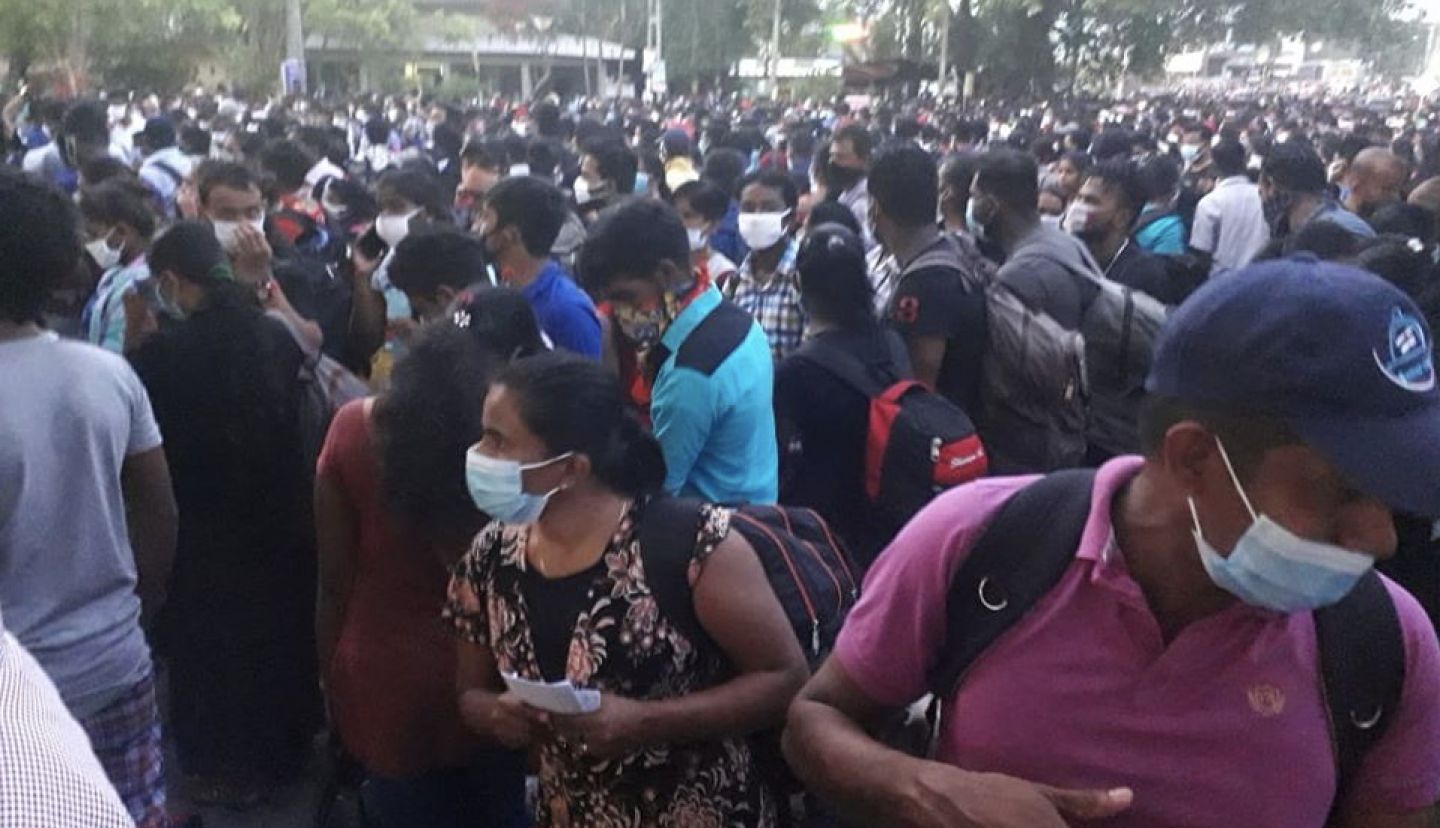The government has taken steps to shut down the country as the Delta strain of the Covid 19 global epidemic spreads rapidly. At the request of various parties, including the trade unions. The closure for the next 10 days from August 21, 2021 has now been extended to September 06.
It is clear that the closure of industries in free trade zones is not possible even though many public and private institutions other than essential services have been shut down. It is because of the Free Trade zones that the foreign exchange crisis we are facing at the moment can be alleviated to some extent. Addressing the nation recently, the President also emphasized the importance of keeping factories open.
However, the Da Bindu Collective emphasizes that it has not taken the necessary steps to ensure the health of workers employed in Free Trade zones across the country, which are essential for the country’s foreign exchange earnings. The Dabindu Collective said that they had faced many difficulties during the outbreak of the epidemic and called on the government to take immediate action to resolve the issue.
At a recent joint press conference with several organizations advocating for workers’ rights in free trade zones, Chamila Thushari, on behalf of the Da Bindu Collective, pointed out that the situation with regard to women workers is extremely sensitive. In a letter to Labor Minister Nimal Siripala de Silva, the groups say free trade zones, where the majority of women work, should be considered sensitive areas.
“Dollars or Human Lives?” At the press conference held in May, the participants stressed that the owners of the factories who appreciate the non-closure measures for foreign orders do not provide the basic facilities required by the workers.
Commenting on the discussion, Chamila Thushari of Dabindu Collective said that no one was interested in finding out about the workers who fell victim to the epidemic. She stressed that the authorities should take steps to protect the dignity, job security, health, and social security of those who are called to work on foreign exchange requirements at a time when the country’s economy is collapsing.

